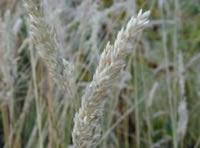Food and Food Production

ORGANIC FARMING METHOD
A government report on organics showed that, since 1996, the area had risen from 25,000 hectares to 250,000 last year, although 27% of this was in conversion from conventional crops. Organic farmers had grown from 900 to 4,000 in the same period.
About 4% of agricultural land was organic, and it was a £1bn a year business. The government favoured organic production: it used less energy, caused less pollution to air and water, and less nitrate loss from soil.
ORGANICS – A Bit of background information
Concern to maintain the vital balance of nature in farming and food dates back to the 1920s. Fertilizers, new pesticides, herbicides and mass rearing of animals were coming into use to increase production of crops and animals per hectare. After the Second World War, the use of intensive methods encouraged the greater use of fertilizer, the removal of hedges to give bigger fields, and large scale monoculture.
A few far-sighted people realized that this kind of farming was slowly eroding the natural productivity of the land and changing the landscape by reducing wildlife and its habitat. The term “organic” gradually came to describe farming methods not causing environmental damage.
“The criteria for a sustainable agriculture can be summed up in one word – permanence, which means adopting techniques that maintain soil fertility indefinitely, that utilize, as far as possible, only renewable resources; that do not grossly pollute the environment; and that foster biological activity within the soil and throughout the cycles of all the involved food chains.”
Poineers
Lady Eve Balfour was a leading pioneer of organic farming. Trained in conventional agriculture, after some 20 years of farming, she began to study organic farming ideas and around 1940, turned her farm to organic.
With other farmers, she helped found The Soil Association in 1946. Lady Eve was its first president, and carried on encouraging organic methods until she was 100, in 1988. Her Suffolk farm became a centre of research into organic farming methods, the role now carried on at Elm Farm Research Centre, www.efrc.com.
Rudolf Steiner (1861 – 1925) was an Austrian philosopher and scientist who developed a form of organic agriculture known as biodynamic, meaning moving with life.
His teaching that humans should work with the rhythms and laws of nature are followed today by a growing number of biodynamic farmers, as well as in Steiner schools, medicine and social banking companies.
Rachel Carson’s book Silent Spring, published in 1963, made many people aware of the destructive effects on wildlife of DDT, then legally used as a pesticide. Her bestseller influenced the growth of efforts to protect the environment, including organic farming.
ORGANIC PHILOSOPHY
The organic philosophy is that humans must recognize that humans can only survive and thrive if they live in harmony with the delicate balance of nature between plants, animals, earth and humans.
In farming, that means using methods that conserve and enrich the soil without causing pollution, damaging wildlife or using up too many of the world’s resources.
The world’s shallow layer of topsoil, on which all our future food depends, contains billions of tiny live organisms in a single handful. These are essential to soil fertility. Protecting the soil and preventing its erosion are essential to our future.
Things to note:
Today, just over 4% of farmland in the UK is farmed organically. In Europe, the proportion is about the same. Worldwide, the market is worth an estimated £15 billion. America and Europe both sell over £5 billion worth of organic food and drink each year. In the UK, the market was valued at £920 million last year.
Across Europe and in the UK the market is growing quickly, on average by 15% each year.
However, organic food still represents a very small portion of our total food sales, only 1%. Most of that, over 80%, is sold through the supermarkets.
Of the organic food we eat in the UK, about 65% is imported.
Nearly 80% of UK households bought organic food last year. A core 8% of consumers account for 60% of sales.
Like other European governments, the UK gives a small amount of financial support to UK farmers whilst they are going organic, or “in conversion”.
More here
Coming soon
more here
Coming Soon




